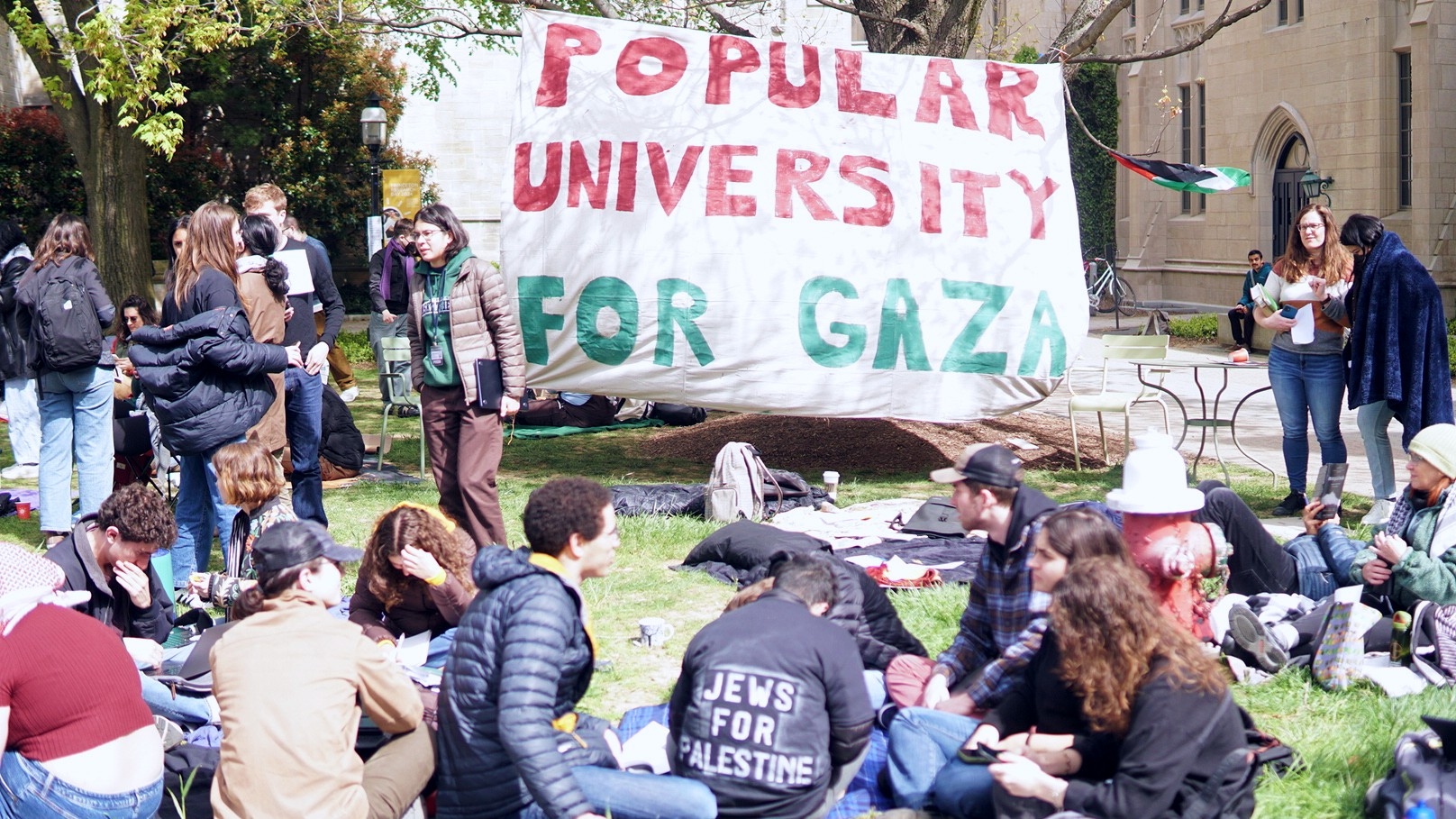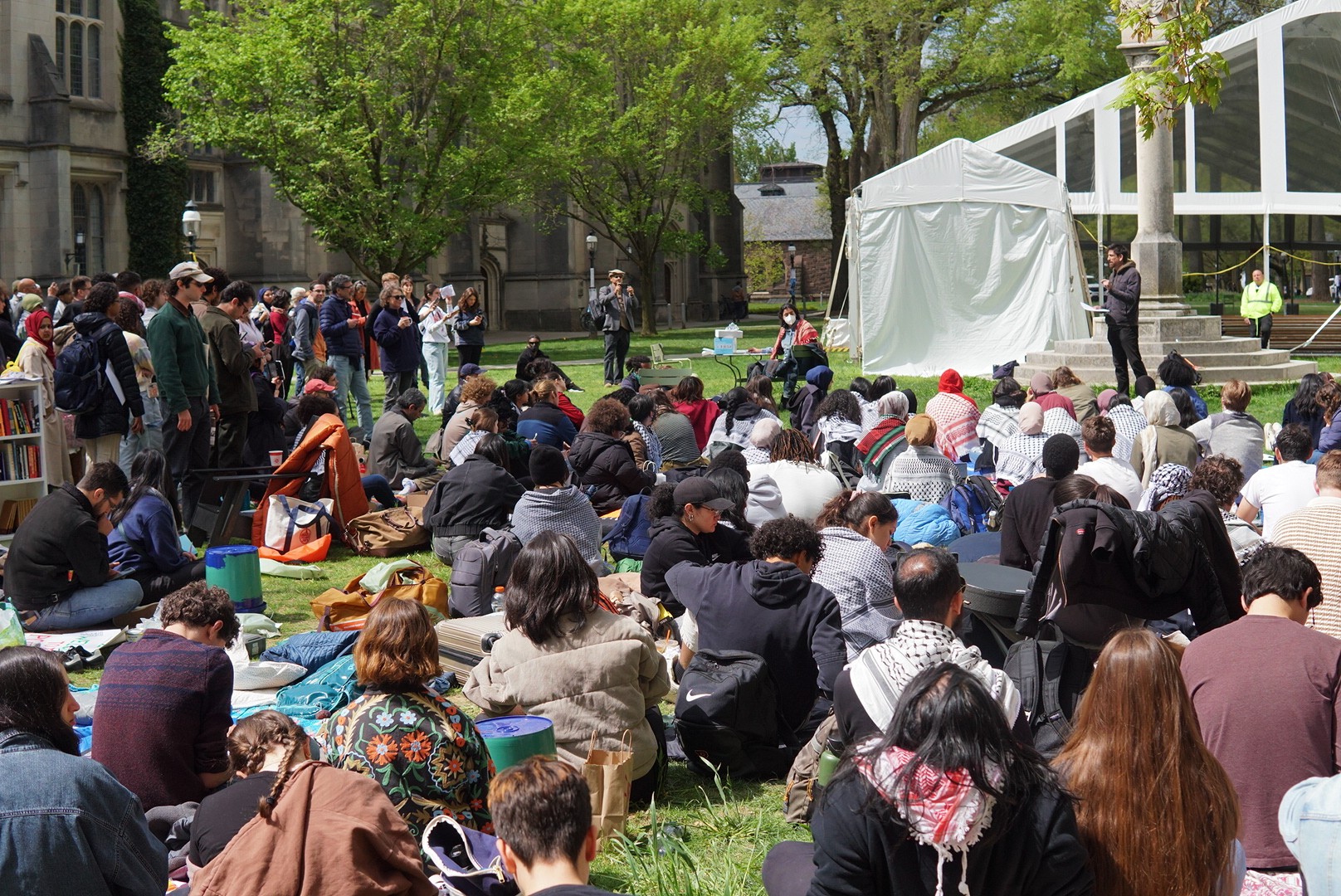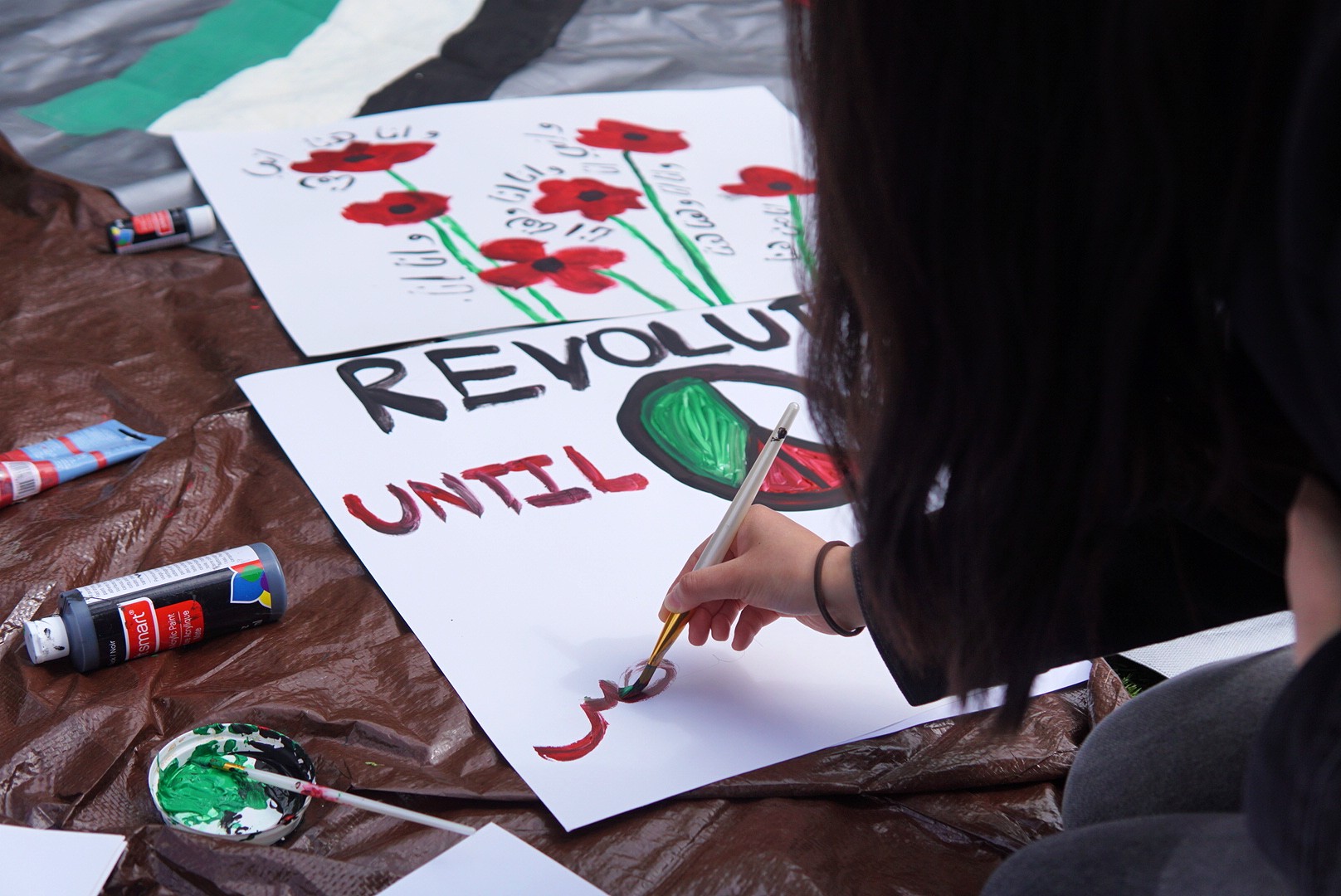Pro-Palestinian students vow to 'de-occupy' Princeton after administration halts encampment

Hours after administrators shut down a fledgling encampment at Princeton University on Thursday morning, hundreds of students took control of a central courtyard at the Ivy League institution, vowing to remain until the university divests from companies profiteering from the Israeli occupation of Palestinians.
Students, faculty and community members brought blankets, books, laptops, and blank canvasses to the lawns across the university's chapel in the McCosh Courtyard on Thursday, setting up a "Popular University for Gaza" to push back at the university's decision to shut down the anti-war encampment as their peers had already done in more than 30 other universities across the US over the past week.
Through the course of the morning, select faculty visited the lawn where the students had assembled, leading teach-ins and discussions.
Organisers said they were calling on the university to divest from companies that “profit from or engage in the State of Israel’s ongoing military campaign” in Gaza as well as for an academic and cultural boycott of Israeli institutions. Activists also demanded the university end all research on "weapons of war” funded by the US Department of Defense.
Between the talks, students painted, passed out leaflets, and set up a mobile library with books ranging from the works of Frantz Fanon to Rashid Khalidi. They also called on passersby to join and chant to make their presence felt.
Stay informed with MEE's newsletters
Sign up to get the latest alerts, insights and analysis, starting with Turkey Unpacked
"We will not stop, we still not rest," the students chanted.
"Resistance is justified when people are occupied."
The coalition of groups under the banner of Palestine Divest Now had originally arrived shortly before 7am local time on Thursday morning to set up camp when they were promptly met by campus security.
Within 10 minutes of setting up their tents, the group was cautioned to dismantle their camp or face arrest and suspension.
"The university claims to protest free speech but drew a hard line on tents because they knew it symbolised solidarity with Gaza with the students all across the country," Sophie, a graduate student at Princeton University who only offered her first name, told Middle East Eye.
"It's quite frustrating that they can change what free speech means when it's convenient to them.
"We were just a few minutes into setting up the tents when they started arresting students," Sophie said.
Two students were subsequently arrested and immediately evicted from student housing and barred from campus, students said.
Students said university administrators had been tipped off earlier this week about a possible encampment on the campus.
On Wednesday, administrators informed students via email that those participating in an “encampment, occupation, or other unlawful disruptive conduct who refuses to stop after a warning will be arrested and immediately barred from campus".
Princeton University did not reply to MEE's request for comment.
Protests extend
The developments at Princeton come as the number of student-led protests continue to spread to other campuses around the US.
On Thursday, hundreds of students at the Harlem campus of City College of New York (Cuny) established its own encampment for Palestine, becoming the fourth to do so in New York City, joining Columbia, New York University, and The New School.
"Students will remain encamped until the CUNY administration meets their demands for divestment, boycott, demilitarization of the campus and solidarity with Palestinian liberation," a statement from CUNY read.
"Students have linked these demands to a vision of a tuition-free, open admissions, people’s CUNY, as well as an end to retaliation against CUNY students and workers speaking out about the genocide of the Palestinian people," the statement added.
Organisers at Cuny said they drew on the legacy of the 1969 Cuny student protest movement, when more than 200 Black and Puerto Rican students de-occupied campus buildings, shutting down the campus for 17 days.
Students with the DC, Maryland, Virginia (DMV) Coalition of Students for Justice in Palestine said they had also set up an encampment at the George Washington University Yard on Thursday morning.
Though the encampment was physically situated at George Washington University, it was organised by and for eight universities in the DMV area.
The protests that have taken place across the US have been perceived as taking place on more liberal campuses in the country, but Princeton is widely considered to be more conservative than other major east coast universities.
One website ranks it as the most conservative of all the Ivy League schools but when compared to schools nationwide, it doesn't crack the top 70 schools with the highest number of conservative students.
"It is known to be the least radical, the most politically apathetic. This has been a longstanding assumption of the university," Aditi Rao, an organiser at Princeton, told MEE.
Another student described the university as striving to "be in service to the nation".
Students at Princeton did however play a role in the international boycott movement against apartheid South Africa in the late 1960s and 1970s.
"This is why the anti-apartheid movement was so productive here. Because it was the first time that the students were gathered en masse to make political change possible," Rao added.
Aditi said they have modelled themselves on the work done by the predecessors at Princeton on fighting for divestment against Apartheid South Africa.
Over the past six months, several students at Princeton who have expressed pro-Palestinian views have faced intimidation, including doxxing and harassment by pro-Israel groups.
Students have previously told MEE that Palestinian perspectives at the university were routinely undermined and conflated with antisemitism by mainstream pro-Israel student groups without any consequence or accountability from the university.
Middle East Eye delivers independent and unrivalled coverage and analysis of the Middle East, North Africa and beyond. To learn more about republishing this content and the associated fees, please fill out this form. More about MEE can be found here.






